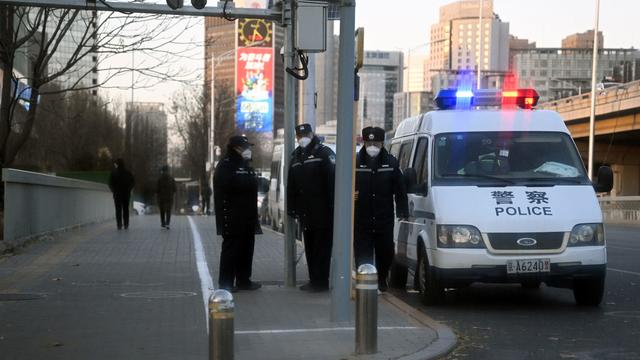
Students sent home, demonstrators questioned as China tries to end protests
Crowds angered by severe anti-COVID restrictions gathered over the weekend in the biggest show of public dissent the country has seen in decades.
Watch CBS News

Crowds angered by severe anti-COVID restrictions gathered over the weekend in the biggest show of public dissent the country has seen in decades.
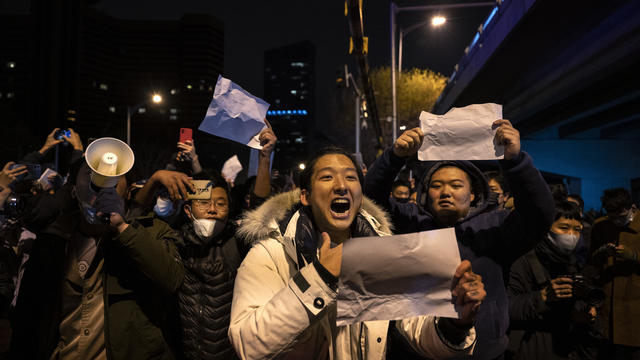
"Down with Xi Jinping! Down with the Communist Party!" protesters could be heard chanting in videos circulated online.
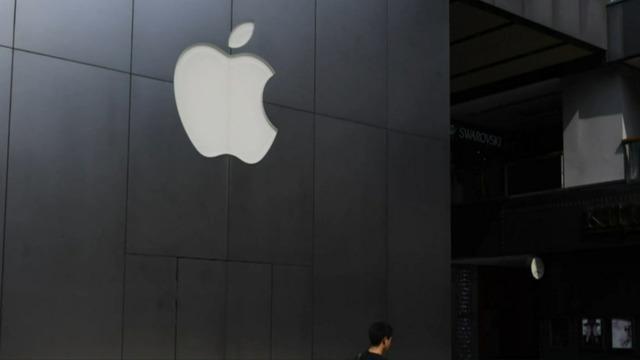
Worker protests and COVID lockdowns in China are causing major issues for Apple, and that's spilling over into other parts of the stock market. Dan Ives, managing director at Wedbush Securities, joins CBS News at the closing bell to discuss.
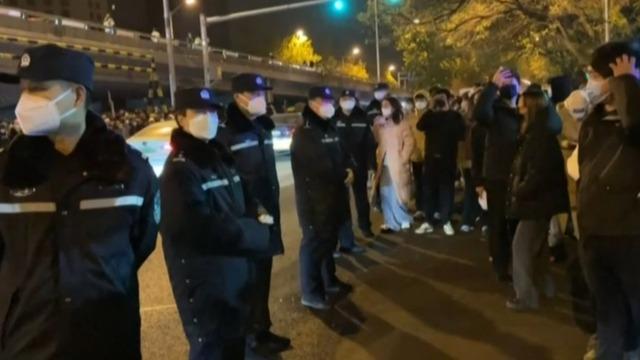
Protests against China's strict zero-COVID policy have spread to the country's biggest cities, including Beijing and Shanghai. On Monday, China recorded 40,052 new COVID cases, setting a record for a fifth straight day. CBS News senior foreign correspondent Elizabeth Palmer has more.
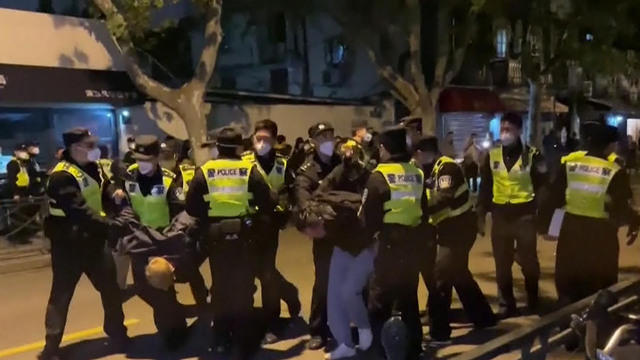
People have once again publicly vented their anger at the Communist Party leaders. Thousands of protesters have turned out in Shanghai and students have demonstrated at universities in Beijing and Nanjing. Elizabeth Palmer spoke with a Shanghai protester who told her she has never seen such brazen anti- government behavior at demonstrations.
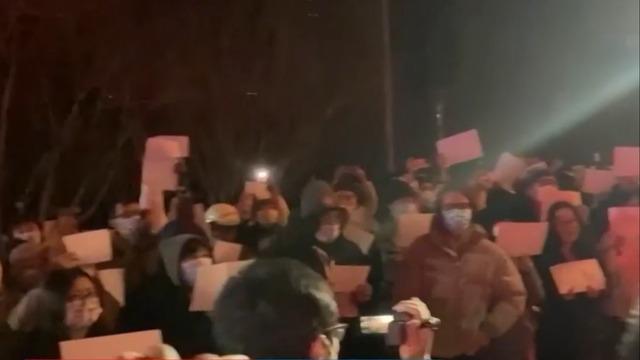
CBS News senior foreign correspondent Elizabeth Palmer reports on the unprecedented protests in China over the government's strict "zero COVID" policy. Then Dan Mattingly, an assistant professor of political science at Yale University, joins Vladimir Duthiers and Errol Barnett to discuss what it means for Chinese President Xi Jinping.
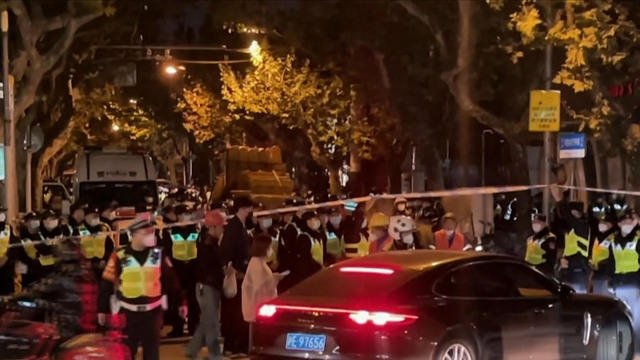
Chinese President Xi Jinping's administration is receiving backlash from Chinese citizens over new COVID lockdowns. Elizabeth Palmer reports.
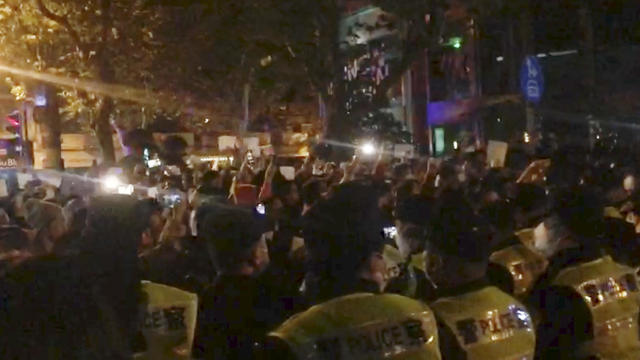
Protests against China's strict "zero-COVID" policies resurfaced in Shanghai and Beijing on Sunday afternoon, continuing a round of demonstrations that have spread across the country.
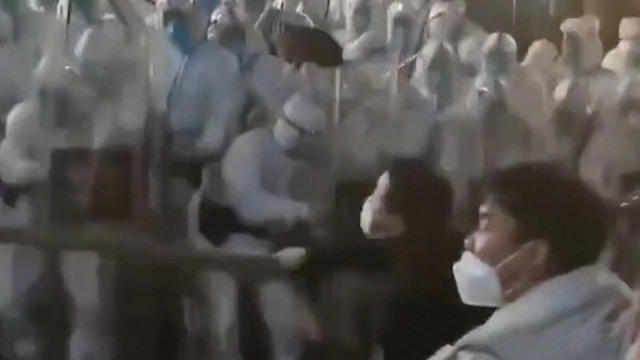
China is seeing a record high number of COVID-19 cases. As a result, the country has enacted a zero-tolerance policy and shut down part of Beijing, causing unrest at a manufacturing plant that could derail Apple's delivery of the latest iPhones. Elizabeth Palmer has the latest.
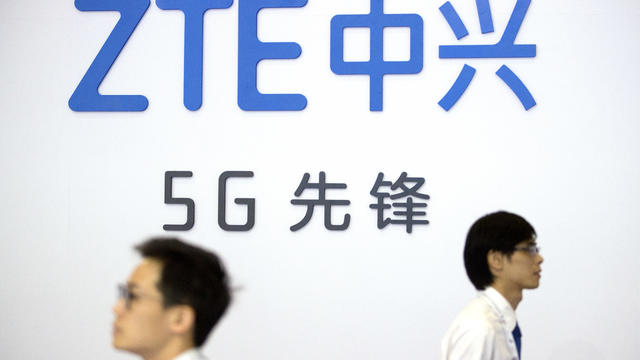
The FCC's order applies to future authorizations of equipment, though the agency leaves open the possibility it could revoke previous authorizations.
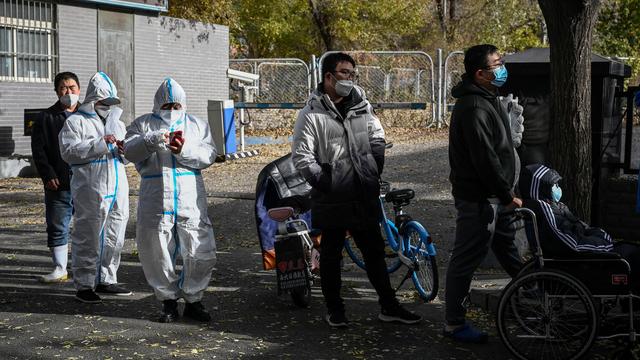
As other nations seem to be living with the virus, China is doubling down on its draconian policy, and that's fueling a rare backlash in the tightly controlled nation.

It's the first time the FCC has banned sales of new equipment out of national security concerns.
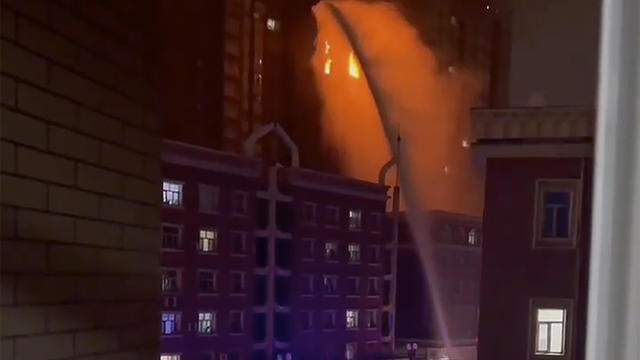
The fire broke out Thursday night in the regional capital of Urumqi, where temperatures have dropped below freezing after dark.
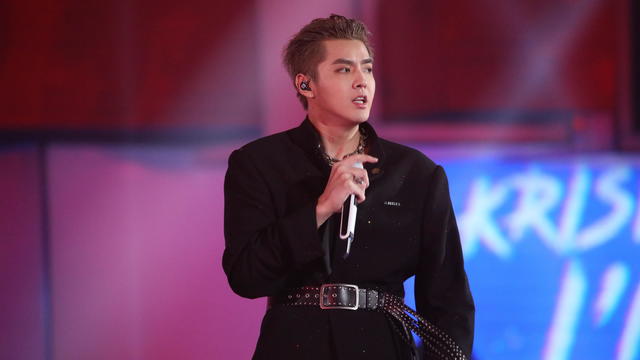
Wu was previously one of China's most bankable stars, but brands including Louis Vuitton and Porsche suspended their partnerships with him over the case.
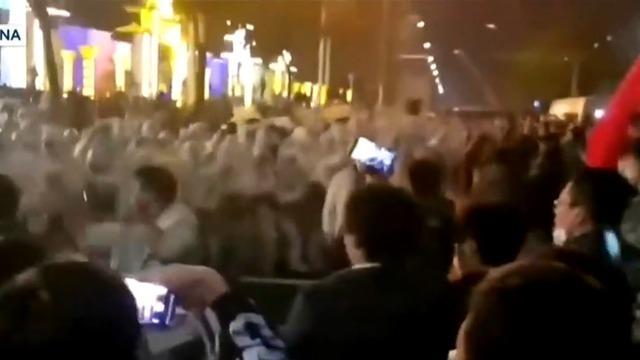
China has put millions in lockdown after violence erupted at the world's largest iPhone factory after workers have endured grueling COVID restrictions.
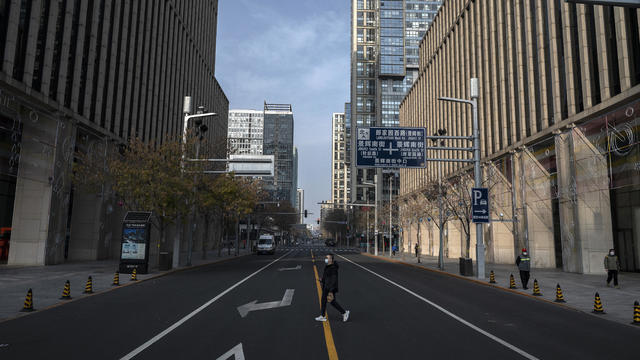
While the numbers of cases and deaths are relatively low compared to the U.S. and other countries, China's ruling Communist Party remains committed to its "zero-COVID" strategy.
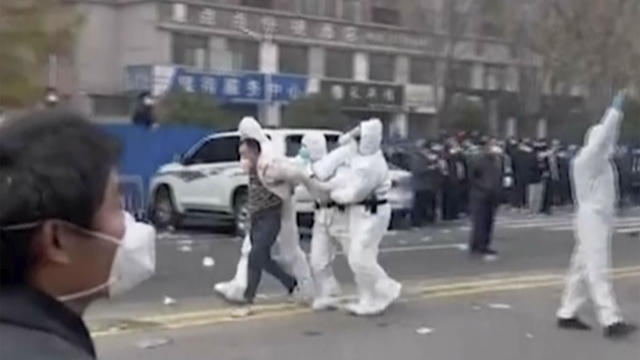
The company says the wage discrepancy has been fixed and offered $1,400 in severance to employees who choose to leave anyway.
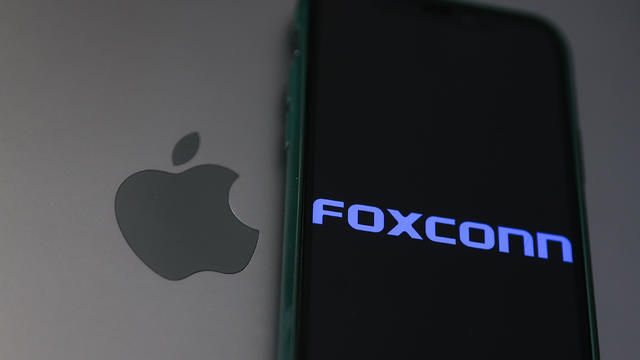
Employees at the world's biggest iPhone plant have complained about unsafe working conditions following virus outbreak.
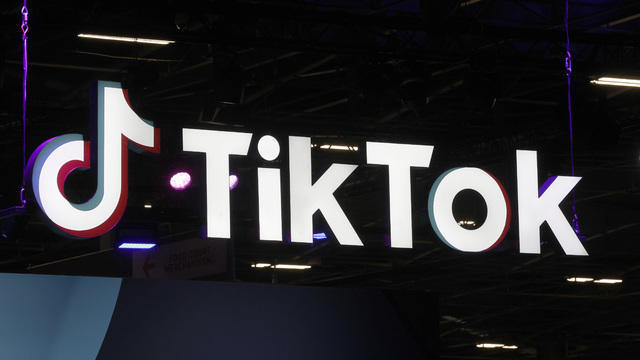
FBI Director Christopher Wray testified on Capitol Hill about TikTok's security threats to the U.S., and said he is "extremely concerned" about the possible influence the Chinese government can exert over the millions of American users on the app. FCC Commissioner Brendan Carr joined CBS News' John Dickerson to discuss.
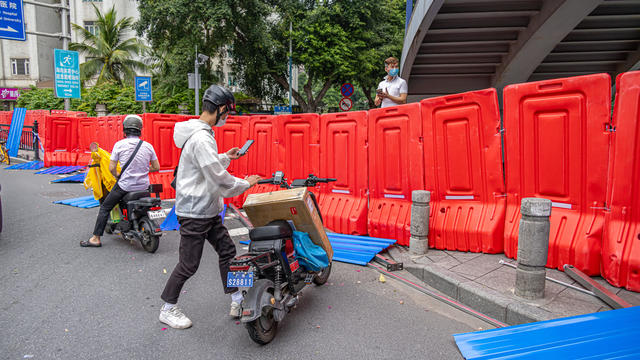
Despite anger vented online over the draconian measures, officials in one major city with cases soaring said they'd build quarantine space for 250,000 more people.
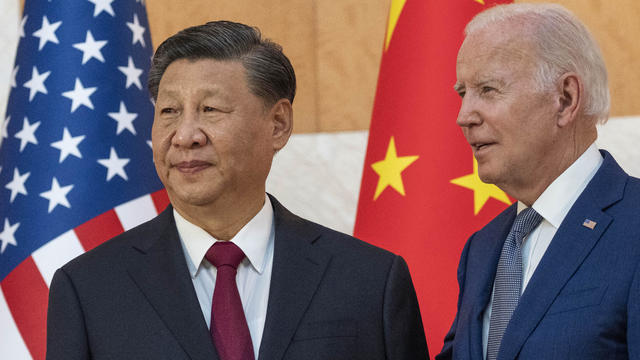
Allison talks with host Michael Morell about Xi's plan for China, the negative consequences of bellicose rhetoric and how Taiwan could potentially trigger a war between the U.S. and China.
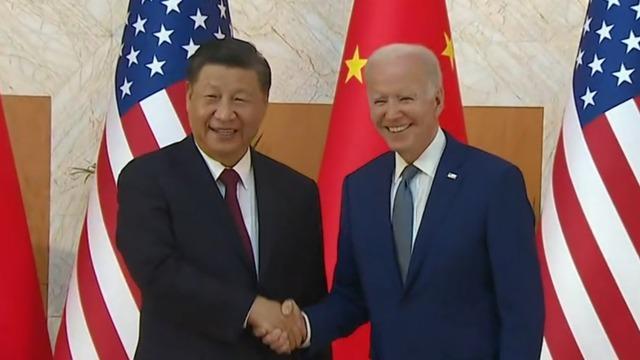
The meeting between President Biden and Chinese President Xi Jinping was seen as a good sign by traders who bet on the markets. Eswar Prasad, the Tolani senior professor of trade policy at Cornell University, joined CBS News' John Dickerson to discuss what the talks mean for the world economy and more.
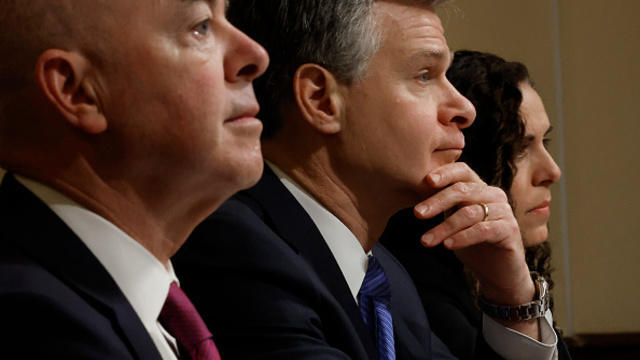
House lawmakers heard testimony on the ever-changing terror threat the U.S. faces at home and abroad. CBS News Homeland Security and Justice Reporter Nicole Sganga breaks down the key takeaways from Tuesday's hearing.
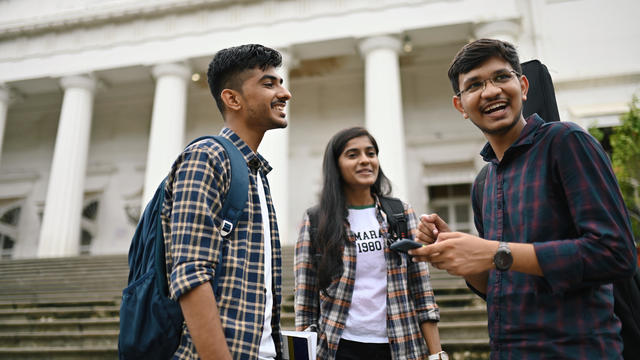
Students from India are returning to U.S. colleges, but enrollment of international students from China is down, a new report shows.
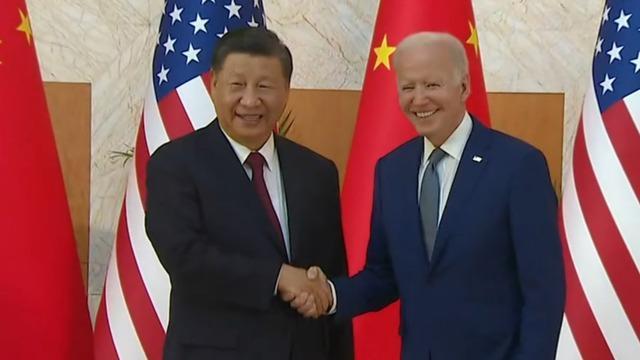
President Biden met with Chinese President Xi Jinping for a face-to-face meeting today. It was the first time the two spoke in person since Mr. Biden took office. CBS News senior White House and political correspondent Ed O'Keefe has more on the meeting, which comes amid rising tensions between the two countries.
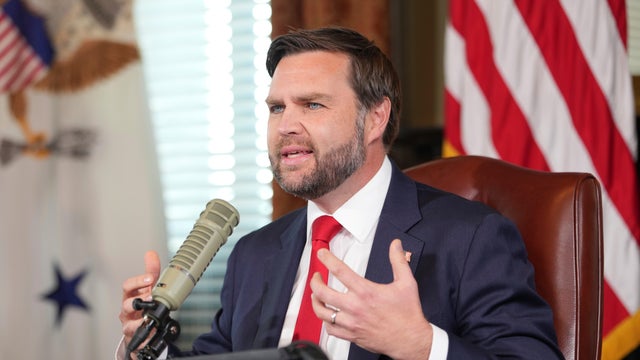
Vance has described his longtime friendship with Kirk, who was also a key ally in his political rise.

President Trump announced Monday the U.S. military has carried out a second strike on alleged Venezuelan "narcoterrorists."
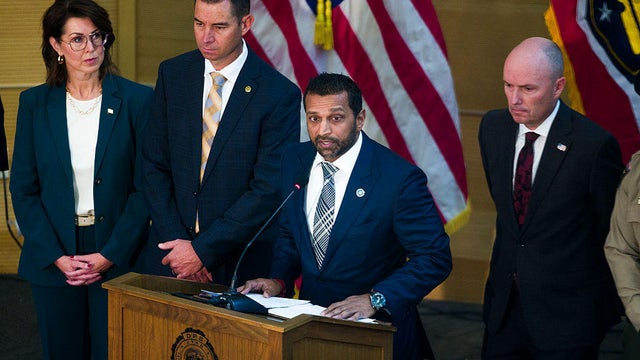
Kash Patel and his deputy Dan Bongino are challenging the FBI's fierce allegiance to message control.
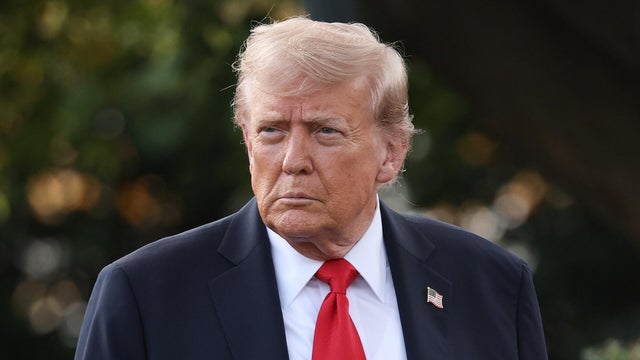
President Trump says getting rid of a quarterly reporting requirement for public companies would lower costs and help businesses.
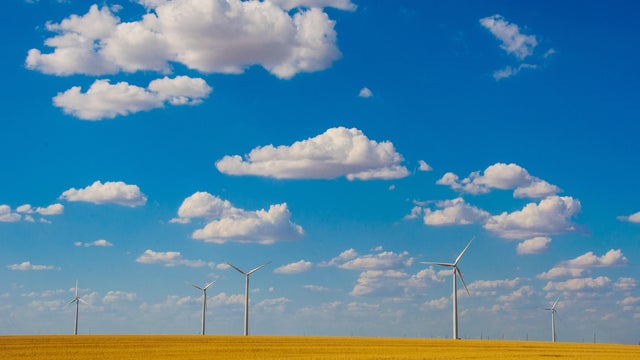
CBS News looked at the cost of producing coal, gas, nuclear, wind and solar energy to determine which is the cheapest.
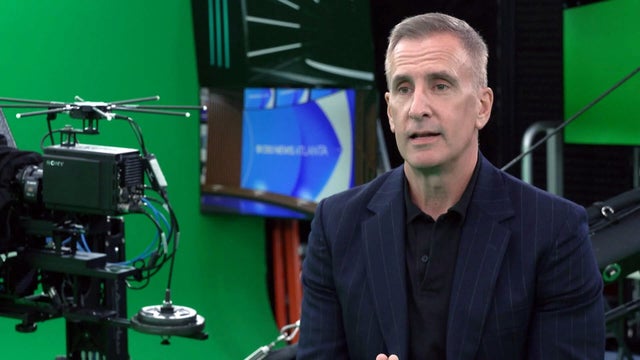
CBS News Atlanta makes its debut with immersive technology, a startup-style newsroom and a mission to serve the community from day one.
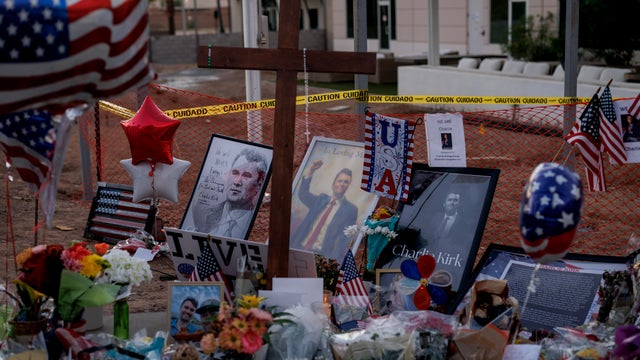
The suspect in the assassination of Charlie Kirk is under special watch in a Utah jail, days after he allegedly shot and killed the 31-year-old conservative activist.
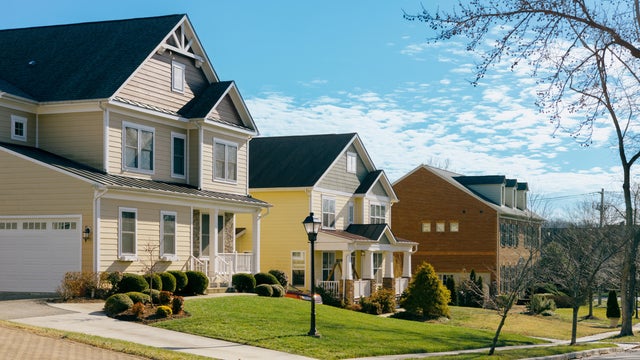
Experts say Americans shouldn't expect a further decline in mortgage rates immediately after the Fed's September meeting.
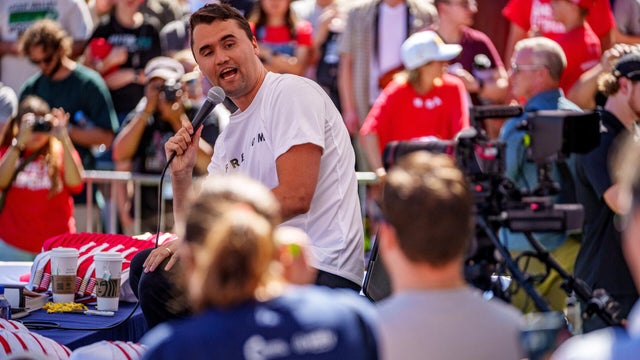
A range of companies and other organizations are sanctioning — and sometimes firing — workers over their public comments about Charlie Kirk. They may have little recourse.